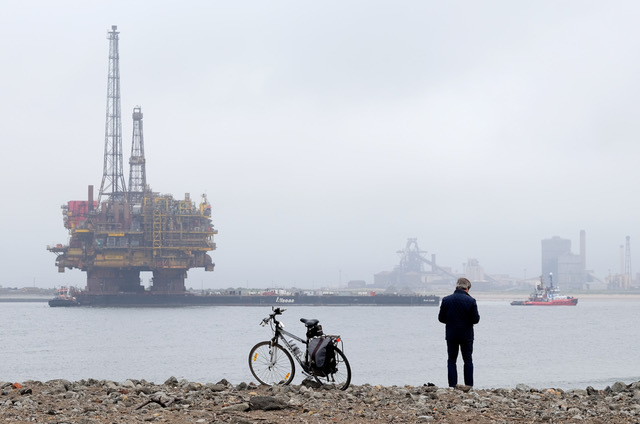
Energy giant Shell paid no taxes on its upstream oil and gas business to the UK government last year, instead receiving large rebates, according to a new report.
Shell has published its Payments to Governments report, a legally required document outlining contributions it made to countries around the world in 2019 from its extractive oil and gas activities.
It shows the oil major paid no taxes for upstream to the UK last year, instead receiving a $116.5m (£94.5m) refund from HM Revenue and Customs, mainly related to decommissioning.
Activist group Greenpeace reacted with “anger” to the report and the tax regime in the United Kingdom.
The UK’s system, designed to encourage future investment, means that participators in certain older oil fields can carry-back losses – such as those arising from decommissioning – against profits previously made from them. This can lead to repayments of Petroleum Revenue Tax (PRT).
The document differs from Shell’s voluntary tax contribution report, published in December, showing it paid no corporation tax in 2018.
Shell said the $116.5m received from HMRC last year related to a corporate tax refund of $33.1m (£26.8m) and two rebates from PRT decommissioning claims.
The first PRT claim was for the Brent field for $74m (£60m), the iconic North Sea development which is currently being shut down, while the other was in relation to the Fulmar field from 2006 for $6.7m (£5.4m).
Shell’s UK country chair Sinead Lynch highlighted earlier this year that many of the firm’s ageing North Sea assets have “generated billions in tax for the UK over previous decades”.
She added: “Brent alone contributing more than £20 billion to the country’s coffers.”
Worldwide, Shell paid a total of $22.6bn ($18.3bn) to governments in 28 countries.
Payments below £86,000 to a government wee excluded from the report.
In December, the UK Government published its “extractive industries transparency initiative” (Eiti) report for 2018, showing Shell paid the least on balance that year due to refunds.
Charlie Kronick, oil finance advisor to Greenpeace UK, said: “When you look at what Norway did with their North Sea oil wealth – building up a sovereign wealth fund with nearly $200k for each citizen – and then at the UK, giving the small sliver we took as tax back to the oil majors, because we couldn’t possibly expect them to pay to clean up their own mess, it’s easy to feel angry.
“And we should be angry, because the cosy relationship between oil lobbyists and politicians is a massive barrier to action on climate change, and a major threat to all of our lives.”
Recommended for you

